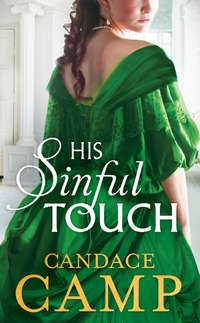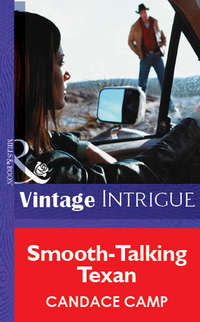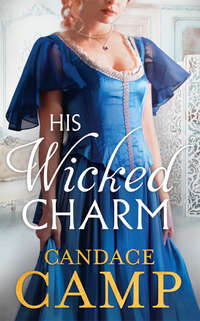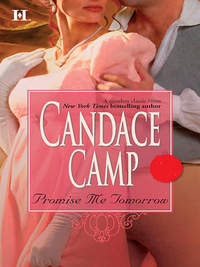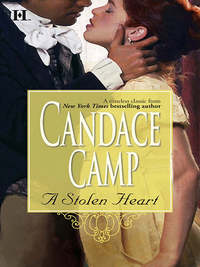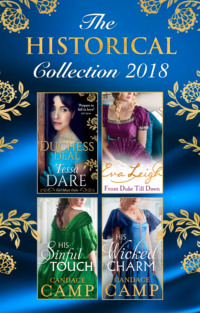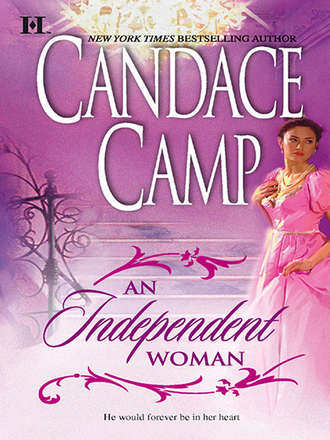
Полная версия
An Independent Woman
She knew her mother worried about these visits; she could see the tension in her mother’s face when she heard his voice at the front door. Diana would look Juliana over anxiously, tugging at her braids and retying their bows, smoothing down her skirts, and Juliana was certain that her mother was afraid she would embarrass her or offend Mr. Barre somehow.
When Juliana complained about having to make her polite appearance, her mother would rebuke her. “Don’t say that. The Barres have been very generous to us. We have nowhere to go if they don’t let us stay here. You cannot offend Mr. Barre. And, please, do not say anything to him about that wicked boy.”
“Nicholas is not wicked! It is Crandall who’s the wicked one.”
But the sight of her mother’s pale face, stamped with anxiety, would make her stop. She schooled herself to be polite and endured her hours with Seraphina and Crandall.
At the time, Juliana had not thought about why the Barres had been so generous as to take her in. She had simply accepted it as a part of her life. As she grew older, though, she had wondered at Trenton and Lilith’s generosity. They were not kind-hearted people, by any means, and while it was little enough expense for them to allow Juliana and her mother to live in the empty cottage on the estate, even such a small act of kindness seemed out of character for them. She had once asked her mother about it, but her mother had looked pained and a little frightened, as she always did when their precarious position at the Barre estate was discussed, and had told Juliana that she should not question their good fortune.
Looking back on it years later, when she was grown and had moved away, Juliana decided that Lilith and Trenton had invited them to live on the estate only because it would have looked bad in the eyes of Society if they had callously left a penniless, widowed cousin to starve. She was certain that their actions were not from some sudden upsurge of human generosity. And, when she found out that it was really Nicholas who would inherit the estate, with his uncle merely holding it in trust for him, Juliana realized that even that bit of generosity had been out of Nicholas’s pocket, not their own.
During those first few years at Lychwood Hall, it was only her friendship with Nicholas that made her life bearable. Even though he had been four years older than she, he had allowed her to tag along after him, and he had more than once protected her from Crandall’s malicious words and pinches. Even though Crandall could ensure that Nicholas would be punished for anything he did or said, still Crandall was scared of him. There was something about Nicholas’s cold, implacable stare that made Crandall back down.
With Nicholas as her ally, Miss Emerson and the Barre children could be ignored. Even the fact that her mother never regained her once-happy personality could be endured.
It had devastated her when Nicholas left. Juliana had understood it, of course. His life was miserable at Lychwood Hall. He wanted to return to Cornwall, where he had lived as a boy with his parents. But his departure had left her chilled and alone.
Now, after all these years, Nicholas had come back. She could not help but wonder what impact his return would have on her life. Juliana sat down on the side of her bed, frowning. She picked up her hairbrush and began to brush out her hair as she thought.
Obviously Mrs. Thrall and Clementine thought that they could use her friendship with Nicholas to snare Clementine the Season’s prize marital catch. Juliana sincerely hoped that her old friend would not be foolish enough to be taken in by Clementine’s beauty. But neither was she so naive as to revive her own long-moribund dreams of love and marriage.
Indeed, she was not sure what she hoped for with Nicholas. She only knew how delightful it had felt to sweep around the dance floor in his arms, how her heart itself had seemed to warm at his smile. And, for the first time in a long time, she was looking forward to the morrow with excitement.
JULIANA WAS IN the sitting room early the next afternoon, embroidering fine stitches on a handkerchief, when the parlor maid announced the arrival of a visitor for her. Juliana took the engraved calling card and stood up, her heart picking up its beat, as the maid ushered Nicholas into the room.
“Nicholas!” She could not stop the delighted grin that spread across her face.
“Juliana.” He crossed the room and took the hand she extended. “You look surprised. Did you think I would not come?”
“Of course not. I just…” She gave a little shrug. She could not really explain her surprise and pleasure that he had found calling on her important enough to do it so soon after seeing her last night. “Please, sit down.”
She sat back down on the sofa, and Nicholas took the chair across from her. His tall, masculine presence somehow made the rather small sitting room seem even more cramped. Juliana was aware of a flutter of nerves in her stomach. She looked at him, suddenly unsure of what to say.
He removed his gloves, and she noticed the ring on his right hand, a plain gold signet ring. It was small and simple; she had not noticed it the night before. But now she stared at it, recognizing the ornate H engraved upon it.
“My father’s ring!” she said in amazement.
“What?” Nicholas followed her gaze down to his hand. “Oh, yes, it is the ring you gave me when I left.”
“You kept it all this time?” Strangely, she felt her throat close with tears.
“Of course.” He grinned. “It’s been my good luck charm.”
Juliana swallowed hard. She felt inordinately pleased to learn that he had kept the memento of hers close to him for so long, yet at the same time she felt uncomfortable.
“I—it has been so long, I scarcely know where to start,” she told him with a little laugh. “Where did you go? What have you been doing? The town is full of rumors about you, you know.”
He made a wry face. “And what do they say about me?”
“Oh, that you have been everything from a smuggler to a pirate to a spy. I suspect that the truth was probably something more prosaic—a sea merchant, perhaps.”
His dark eyes lit with amusement. “All of them, perhaps, have some truth to them. Although I do not think I have ever actually stopped a ship and demanded chests of gold and gems.”
“How disappointing,” Juliana commented. “I shall not let all the young girls know. It will quite spoil the picture they have built up of you.”
“Please,” he said in a heartfelt manner. “I wish you would spoil their view of me. I should very much like to go somewhere without finding an empty-headed chit and her odious matchmaking mother determined to cast their lures at me.”
“There is little hope of that,” Juliana retorted. “You are reputed to be quite wealthy. And with a title, as well…I am afraid you will find your path quite littered with them until you finally decide to marry one of them.”
“Never,” he remarked, with a grimace.
“Then I should warn you that you should not linger here,” Juliana went on.
Nicholas’s dark brows rose, and then understanding dawned in his eyes. “The blond girl?”
Juliana nodded. “Clementine.”
He opened his mouth to speak, but just at that moment, as if the conversation had called them, there was the sound of hurried steps outside, and Mrs. Thrall swept into the room.
“Lord Barre! What a delightful surprise! I am so sorry I was not here to greet you when you arrived.”
With a rueful glance at Juliana, Nicholas stood up and made a polite bow. “Mrs. Thrall. We were just speaking about you.”
The woman tittered, casting a flirtatious look at him. “Flatterer! I’ll warrant I know who it is you are interested in seeing, and it is not me. Don’t worry. Clementine will be down in a moment.” She turned toward Juliana. “Juliana, dear, why don’t you ring for tea? Let’s have it in the drawing room.” She turned back toward Nicholas with a smile. “It is much roomier, my lord. I cannot imagine what Juliana was thinking of to receive you in here.”
Nicholas cast an indifferent glance around the room. “I was more interested in talking to Juliana than in the room.”
“Prettily said, sir, but, still, I think we will find it more pleasant to converse in the front room.”
There was little to do except go with Mrs. Thrall as she ushered Nicholas out of the room and down the hallway to the more formal drawing room at the front of the narrow house. Juliana rang for tea, as her employer had requested, and sat down, resigned to having her chat with Nicholas spoiled.
Clementine came rushing in a few minutes later, breathless and attractively flushed, and Juliana noted that she had paused to put on a different dress than she had been wearing earlier, and tie a new blue ribbon through her curls.
“Lord Barre!” She came forward and dropped him a pretty little curtsey, extending her hand and smiling at him. “I was so surprised when Mama told me that you had come to call on me.”
Nicholas raised one brow at this bit of news. “Actually, I called on Miss Holcott.”
Clementine’s eyes widened a bit at this unexpected rebuff, but her mother jumped in to cover her momentary silence.
“Yes, we were so surprised to hear that dear Juliana was acquainted with you,” Mrs. Thrall said. She wagged a playful finger at her employee. “Such a naughty girl you are, keeping your news a secret.”
Juliana was tempted to reply that who she knew or didn’t know was no business of Mrs. Thrall’s, but Nicholas intervened, saying smoothly, “No doubt Miss Holcott did not deem knowing a reprobate like me worthy of your attention, madam.”
Mrs. Thrall’s response to this was a shrill whinny of laughter. “Oh, you…” She snapped open her fan and covered the lower half of her face in a girlish way that looked bizarre, given that she was well into middle age.
Clementine, annoyed at not being the center of attention for so long, jumped back into the conversation. “Your life must have been so fascinating,” she said to Nicholas, gazing at him with wide, limpid eyes. “You have seen so many places. I can scarce imagine what you must have done.”
“Oh, yes,” Mrs. Thrall agreed. “You must tell us about your travels, Lord Barre.”
Juliana could envision the woman storing up tidbits to drop into her future conversations. “As Lord Barre was saying to me the other day…” or “Lord Barre told me he found India quite…”
She glanced at Nicholas, whose expression indicated that he had little desire to conduct a travelogue for Mrs. Thrall and her daughter. He glanced toward Juliana, then turned back to Mrs. Thrall, saying, “You must forgive me, madam. I am afraid I haven’t time to stay and chat. I just came by to invite Miss Holcott to come riding tomorrow in my curricle.” He looked over at Juliana. “If you would like to, I could come by in the morning.”
“That would be lovely,” Juliana replied quickly, not even looking toward Mrs. Thrall for permission. She was not about to let the woman ruin another visit with Nicholas by giving her a chance to thrust Clementine into their party.
“Excellent.” Nicholas rose to his feet. “Now, if you will excuse me, I must take my leave of you ladies. Mrs. Thrall. Miss Thrall.” He sketched a brief bow in their direction. “Miss Holcott.”
“My lord.”
Clementine stared after Nicholas as he left the room, too astonished for a moment to even say anything. Then she whirled around to face Juliana, her face contorting with anger. Juliana had a sudden, wicked desire that the girl’s suitors could see her as she looked now.
“No!” Clementine exclaimed. “You cannot go. I won’t allow it.”
CHAPTER THREE
JULIANA’S BACK stiffened. “I beg your pardon?”
“Mama!” Clementine whirled around to face her mother. “You cannot allow Juliana to go with Lord Barre. I should be the one to ride in his curricle.”
It took all Juliana’s strength of will not to snap at the girl that she was the one Lord Barre had invited, not Clementine.
“Oh, no, dear,” Mrs. Thrall assured her. “Don’t you worry about that. Of course he had to invite Juliana. It would not do for a young girl like you to ride out with a man alone. You have to have Juliana as a chaperone.”
“No, I don’t,” Clementine insisted. “It’s perfectly all right for a lady to go for a ride in a vehicle with a gentleman alone, especially an open-air one like a curricle. Juliet Sloane told me ladies and gentlemen do it all the time.”
Her mother looked uncertain. “Well, I know that it’s unexceptionable for older ladies and gentlemen, but a girl your age, new to the Town, I’m not sure….”
She glanced toward Juliana. “What do you think, Juliana?”
“I think that it scarcely matters in this instance, since Lord Barre has already invited me to ride with him.”
“That’s true.” Mrs. Thrall brightened. “And you can count on it, Clemmy, that if as highborn a gentleman as Lord Barre asked Juliana to come along, as well, then that is the way it should be.”
Juliana had to grind her teeth together to keep from pointing out that Lord Barre had not invited Clementine along at all. It galled her to think of the tiresome girl inserting herself into her ride with Nicholas. She would chatter and giggle and flirt like mad, and Juliana would have no more chance to chat alone with him than she had had today. It was, she thought, the outside of enough. But she could scarcely tell her employer that her daughter was not welcome to come with them. Mrs. Thrall would all too likely forbid Juliana to go, as well.
Clementine pouted for a few minutes, flashing a look of intense dislike in Juliana’s direction, until finally Mrs. Thrall suggested that the two of them go to a millinery shop and purchase a fetching new bonnet for Clementine to wear on the ride tomorrow. Juliana, she said, could take Fiona to the bookshop, as the tiresome girl had been begging to go.
Mrs. Thrall would have been surprised to learn that Juliana much preferred doing almost anything with her younger daughter Fiona than with Clementine or her mother. Fiona, at thirteen, had a livelier wit and more charming personality than Mrs. Thrall and Clementine combined. Juliana had spent a great deal of time with the girl, as Mrs. Thrall found Fiona’s questions tiring and her interests peculiar, so she often shoved her younger daughter off into Juliana’s capable hands.
Fiona, it turned out, was finding Clementine as obnoxious today as Juliana. “If I hear one more word about Lord Barre, I think I shall scream,” she told Juliana as they strode up the street in the direction of the bookshop.
Juliana glanced down at the young girl and smiled. Fiona’s coloring was much like her sister’s, her hair pale blond and her eyes blue, but there the resemblance ended. Fiona was already as tall as her petite sister and showed no signs of stopping growing yet. Her face was squarish in shape, with a firm chin, and none of the soft, dimpled look for which Clementine was well-known. In sharp contrast to Clementine, her blue eyes were sharp and gleaming with intelligence.
“She has done nothing but talk of the man the whole day,” Fiona went on in irritation. “How handsome he is, how wealthy he is, how respected his name is.”
“Lord Barre is a…remarkable man,” Juliana told her.
The younger girl made a face. “No one could be the paragon that Clementine describes.”
Juliana chuckled. “Well, that is probably true. But he is a friend of mine. We grew up together, and long ago he was the best friend I had.”
“Really?” Fiona looked up at her in astonishment. “You are friends with the man Clemmy is going to marry?”
Juliana raised one brow skeptically. “Is that what she said?”
“Oh, yes. She said he would be head-over-heels about her in a few days.” Fiona grimaced. “And she’s usually right about men, even if she is abysmally ignorant about everything else. Men seem to be disgustingly taken with her.”
Juliana automatically started to remind Fiona that she should not talk so disparagingly about her sister. But on second thought, she decided that it was wrong to reprimand the girl for speaking the truth. “I’m not sure that she will have the usual success with this one.”
The evening before Juliana had wondered if Nicholas might become attracted to Clementine’s beauty. He had, after all, smiled and conversed with her. But his actions today had left little room for misinterpretation. He had left, pleading lack of time, shortly after Clementine had entered the room and taken over the conversation, and, whatever Mrs. Thrall might choose to think about Nicholas’s invitation, he had not included Clementine in it. Mrs. Thrall and her daughter might be able to arrange it the next morning so that he had to take Clementine along, but Juliana was quite certain that he had not intended for Clementine to go.
Juliana, too, had seen Clementine wrap men around her finger, and she could not say with certainty that she might not be able to eventually work her wiles on Nicholas, but she did not think it would be easy.
“That would be wonderful,” Fiona said, grinning. “He must be smarter than most of the men Clemmy sees.”
“Yes, I rather think he is. Nicholas was always perceptive.”
“How did you know him?”
“He was orphaned and had to live with his uncle. My mother was a cousin to his uncle’s wife, and we lived in a cottage on the estate. Nicholas and I formed a—well, a sort of alliance of outcasts.”
“Why was he an outcast? I mean, he is a lord now,” Fiona pointed out.
“It was odd,” Juliana agreed. “He wasn’t treated like a future lord. I never even realized until I heard that he’d come into the title that he was the heir. His grandfather was ill and lived in Bath, and Nicholas’s uncle was his guardian. The way everyone acted…well, I never asked, but I assumed that his uncle Trenton was the one who would inherit the title and the estate, and that after him, Trenton’s son Crandall would. Trenton Barre ran the estate for his father, and everyone acted as if he were the lord and master.”
“Why?” Fiona asked.
“Trenton Barre was a tyrant. I think probably everyone was too scared of him to cross him. There were people—some of the servants and some of the farmers who lived around there—who were nice to Nicholas. But in a secretive way, not in front of his uncle. I never understood why Uncle Trenton disliked Nicholas so. Now I can see that it was because he knew that Nicholas would inherit the title, not him or his son. It must have galled him terribly to know that one day he would have to turn over the estate he ran to Nicholas. That he would have to call him ‘my lord.’”
“Well, he can’t have been terribly smart. I mean, wouldn’t it have been better to be kind to him? Maybe then he wouldn’t have had to lose everything when Lord Barre came into the title.”
“I don’t think Uncle Trenton thought that way. It seemed to always be all or nothing with him. He had to be in command. I think he viewed the estate as his and hated Nicholas for being a reminder that it really was not.” Juliana shrugged. “At any rate, he didn’t have to see Nicholas succeed to the title. He died several years ago.”
“It sounds as if he was a terrible man,” Fiona commented.
“He was. I was glad I was in Europe with Mrs. Simmons at the time he died and couldn’t be expected to return for the funeral. I would have found it difficult to honor him.”
They walked on in silence for a few more minutes, and then Fiona said, “Well…if Lord Barre is a friend of yours, then I suppose I cannot dislike him. As long as he does not fall in love with Clementine, that is.”
“Yes,” Juliana agreed. “I think that I would have a hard time liking him, too, if he did that.”
Fiona began to talk about the book she had just finished reading, and Juliana listened to her chatter, her mind only partly on what the girl was saying. The rest was occupied with mentally sorting through her small wardrobe, trying to find a dress that was not horribly dull to wear on her ride the next morning.
That, she soon realized, would be an impossible task. All her dresses were plain and sewn of sensible fabrics in dark shades of gray, blue and brown, chosen for their durability and practicality, with an eye to giving Juliana the appearance of dull reliability that people sought in a paid companion. Companions, after all, were not usually hired in the hopes that they would be entertaining and interesting people to have around. They were there to provide a certain respectability for a woman on her own, or to fetch and carry and respond to someone’s boring conversation with apparent interest.
Juliana found that she could not bear to appear the next morning looking dowdy, so that evening she took out her best bonnet and re-attached the saucy little cluster of cherries that she had removed from it in order to dress it down. There was little she could do to the dress to improve it other than add a small ruffle of lace around the modestly high neck and long sleeves.
She thought of sitting beside Clementine, who would be wearing a doubtlessly fetching new hat, and she could not help but feel a stab of jealousy. She had spent her life around people who had more than she did, and Juliana thought that she had done very well at not feeling envious. She had always tried to think instead of the graces of her life—good health and reasonably attractive looks, and her ability to make her own way in the world without being at the mercy of others, as her mother had been. She was free and had at least a small amount of savings, and she had made some very good friends in her life. These things were much more than some people had, she knew, and she normally felt grateful for them and did not hunger over what others possessed.
But this time she could not shrug off the black resentment that crept over her as she thought of Clementine wedging her way into this moment that belonged to Juliana. Clementine would talk and preen and spoil the moment. There was nothing she could do, however, except hope that Clementine would, in her usual way, be so late that they could leave without her.
Unfortunately, the next morning Clementine was in the sitting room ready to go only minutes after Juliana. She was flushed with excitement, her eyes sparkling and her cheeks rosy, looking, Juliana had to admit, quite lovely. And the hat she had bought yesterday was indeed fetching, a chip straw with a shallow brim that showed her face to full advantage and tied with a great blue satin ribbon that accentuated the blue of her eyes.
When Nicholas was announced a few minutes later, he strolled into the room, his eyes sweeping over Clementine and her mother. “Mrs. Thrall. Miss Thrall.”
His gaze came to rest on Juliana, and a faint smile lightened his dark visage. “Juliana. Are you ready?”
“Yes.” Juliana rose, glancing toward Clementine, who also stood up.
“My lord,” Clementine said, smiling prettily and coming forward, reaching out to tuck her hand into his arm. “I am all aflutter. Is your curricle terribly high-seated? I shall be quite frightened if it is.” She let out a little chuckle, inviting him to share in the amusement of her charmingly silly feminine fear.
Nicholas looked back at her, his face wooden, and did not move to extend his arm to her. He said only, “I am sorry, Miss Thrall, there must have been some sort of misunderstanding. My invitation this morning was for Miss Holcott.”
Clementine’s jaw dropped at the obvious snub, and Juliana had to press her lips together tightly to keep a smile from forming on them.
Mrs. Thrall, too, stared in astonishment, but she recovered more quickly than her daughter, saying, “I—I presumed it was a general invitation. After all, it is scarcely proper for a gentleman and lady to jaunt about the city alone in a carriage.”
Nicholas turned his flat dark gaze on the older woman. “It is gratifying that you are so concerned about Miss Holcott’s good name, madam, but I assure you, it is perfectly acceptable. It is an open carriage. And quite small. I fear only two people are able to ride in it at a time, which is the reason that my invitation was specifically to Juliana.”


